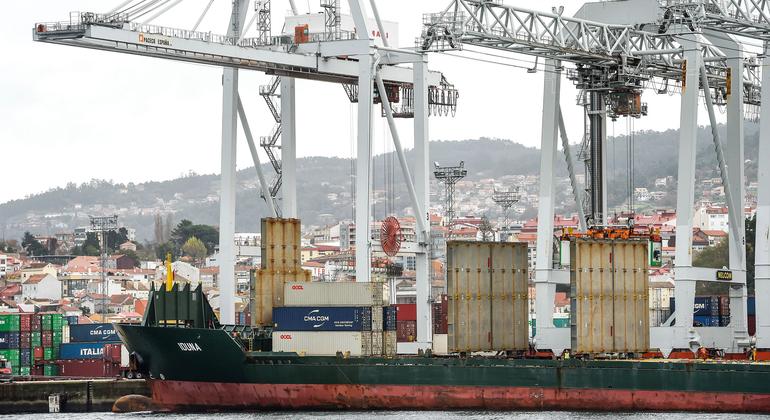The global trade could experience a 3% contraction due to the recent tariff measures implemented by the United States, which could reshape and strengthen regional trade ties that have not been fully explored. This warning was issued by Pamela Coke-Hamilton, Director of the International Trade Centre (ITC), during a press conference held in Geneva.
Coke-Hamilton highlighted that, although the White House has announced a 90-day pause on tariffs considered “reciprocal” for most countries, excluding China, Mexico’s exports have already been significantly impacted as a result of drastic changes in US trade policy. The most affected countries include Mexico, China, Thailand, and several nations in southern Africa, as well as the United States itself.
The pause, which includes a reduction in tariffs to 10%, contrasts significantly with the tariffs on Chinese imports, which currently stand at 145%. In turn, China has imposed rates of 125% on US products. This situation has led Mexico to divert its exports from traditional markets to countries like Canada and Brazil, seeking new growth opportunities amid an uncertain landscape.
Countries like Vietnam are also adjusting their export flows, directing them towards the European Union and South Korea in an attempt to find new trade routes. However, emerging economies face a considerable challenge as their ability to adapt to instability is limited, particularly in terms of diversifying manufacturing and adding value to primary products.
Coke-Hamilton also mentioned the concerns of the World Trade Organization (WTO), which has estimated that trade between the US and China could drop by up to 80% if the current situation persists. Despite this alarming forecast, it was noted that both countries only represent between 3% and 4% of global trade, leaving 96% of commercial activity to continue.
The ITC director believes that the 90-day pause is not enough to stabilize global trade, arguing that the lack of predictability and stability will have negative effects on companies and economic decisions. Although it is not anticipated that the trade war will end the current global economic system, significant tensions in supply chains and a reevaluation of global trade alliances are expected. Coke-Hamilton warns that this situation could lead to significant changes in the global economy, similar to the tremors experienced in the last five decades, but potentially more intense this time.
via: MiMub in Spanish










